Bringing together linguists and literary scholars, UNamur's Institute of Language, Text and Transmediality provides a platform for interdisciplinary diachronic and synchronic research into the multiple ways in which different types of verbal and multimodal communicative practices manifest themselves in, give shape to, are regulated by and reflect culture and society.
Points forts
NaLTT réunit des chercheurs spécialisés dans l’étude des attitudes, des contacts et des conflits linguistiques, de la politique et de la planification linguistiques, du discours rapporté et de l’expression du point de vue, ainsi que dans l’étude de la multimodalité. L’analyse linguistique des langues signées sur des données de corpus constitue l’une des originalités de NaLTT au sein du LSFB Lab.
Dans le domaine littéraire, NaLTT fédère les travaux de spécialistes des biographies littéraires, de la théorie de la littérature, de la littérature du Moyen Âge, de la littérature missionnaire, de l’édition de textes, de la sociologie de la littérature et de la théorie de la traduction.
NaLTT propose aux doctorants un environnement de recherche stimulant et convivial. Il se veut un incitant pour le développement des collaborations entre chercheurs juniors et seniors et un espace de formation (continue) à la recherche.
Spotlight
News
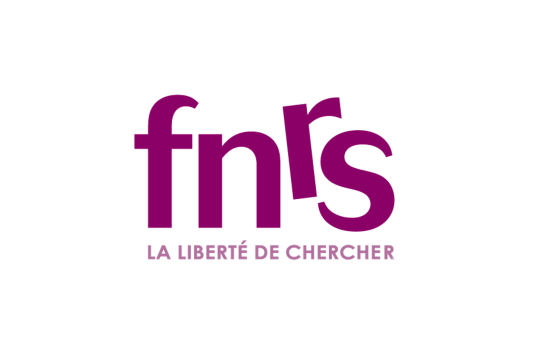
28 new research projects funded by the FNRS
28 new research projects funded by the FNRS
The F.R.S.-FNRS has just published the results of its various 2025 calls for proposals. These include the "Credits & Projects" and "WelCHANGE" calls, as well as the "FRIA" (Fund for Research Training in Industry and Agriculture) and "FRESH" (Fund for Research in the Humanities) calls, which aim to support doctoral theses. What are the results for UNamur? Twenty-eight projects have been selected, demonstrating the quality and richness of research at UNamur.
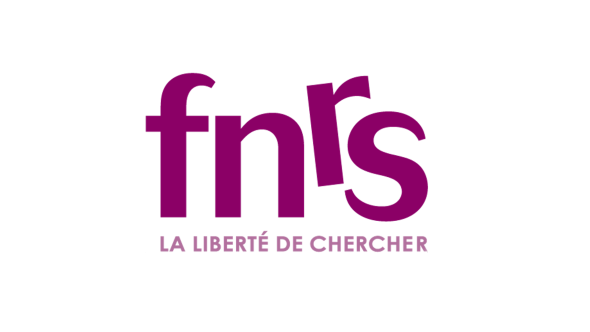
The "Credits & Projects" call for proposals resulted in 12 grants being awarded for ambitious new projects. These include two "equipment" grants, eight "research credits (CDR)" grants, and two "research projects (PDR)" grants, one of which is in collaboration with the ULB. The FRIA call for doctoral research support will fund eleven doctoral scholarships and the FRESH call will fund three.
Two prestigious Scientific Impulse Mandates (MIS) were also obtained. This three-year funding supports young permanent researchers who wish to develop an original and innovative research program by acquiring scientific autonomy within their department.
We would also like to highlight the two projects funded under the "WelCHANGE" call, a funding instrument for research projects with potential societal impact, led by a principal investigator in the humanities and social sciences.
Detailed results
Call for Equipment
- Xavier De Bolle, Narilis Institute, Co-promoter in collaboration with UCLouvain
- Luca Fusaro, NISM Institute
Call for Research Grants (CDR)
- Marc Hennequart, NARILIS Institute
- Nicolas Gillet, NARILIS Institute
- Jean-Yves Matroule, NARILIS Institute
- Patricia Renard, NARILIS Institute
- Francesco Renzi, NARILIS Institute
- Stéphane Vincent, NISM Institute
- Laurence Meurant, NaLTT Institute
- Emma-Louise Silva, NaLTT Institute
Call for Research Projects (PDR)
- Jérémy Dodeigne, Transitions Institute, Co-supervisor in collaboration with ULB
- Luc Henrard, NISM Institute; Co-supervisor: Yoann Olivier, NISM Institute
Fund for Training in Research in Industry and Agriculture (FRIA)
- Emma Bongiovanni - Supervisor: Catherine Michaux, NISM Institute
- Simon Chabot - Supervisor: Carine Michiels, Narilis Institute; Co-supervisor: Anne-Catherine Heuskin, Narilis Institute
- Lee Denis - Supervisor: Muriel Lepère, ILEE Institute
- Maé Desclez - Supervisor: Johan Yans, ILEE Institute; Co-supervisor: Hamed Pourkhorsandi (University of Toulouse)
- Pierre Lombard - Supervisor: Benoît Muylkens, Narilis Institute; Co-supervisor: Damien Coupeau, Narilis Institute
- Amandine Pecquet - Supervisor: Nicolas Gillet, Narilis Institute; Co-supervisor: Damien Coupeau, Narilis Institute
- Kilian Petit - Supervisor: Henri-François Renard, Narilis Institute; Co-supervisor: Xavier De Bolle, Narilis Institute
- Simon Rouxhet - Supervisor: Catherine Michaux, NISM Institute; Co-supervisor: Nicolas Gillet, Narilis Institute
- William Soulié - Supervisor: Yoann Olivier, NISM Institute
- Elisabeth Wanlin - Supervisor: Xavier De Bolle, Narilis Institute
- Laura Willam - Supervisor: Frédérik De Laender, ILEE Institute
Fund for Research in the Humanities (FRESH)
- Louis Droussin - Supervisor: Arthur Borriello, Transitions Institute; Co-supervisor: Vincent Jacquet, Transitions Institute
- Nicolas Larrea Avila - Supervisor: Guilhem Cassan, DeFIPP Institute
- Victor Sluyters – Supervisor: Wafa Hammedi, NADI Institute
- Amandine Leboutte - Co-supervisor: Erika Wauthia (UMons); Co-supervisor: Cédric Vanhoolandt, IRDENa Institute.
Scientific Impulse Mandate (MIS)
- Charlotte Beaudart, Narilis Institute
- Eli Thoré ILEE Institute
WelCHANGE Call
- Nathalie Burnay Transitions Institute, in collaboration with UCLouvain
- Catherine Guirkinger, DeFIPP Institute
Congratulations to all!

When internet memes become a subject of research
When internet memes become a subject of research
Born on the internet, memes are an integral part of digital culture. These images, often humorous, combine text and visuals to convey a message. At UNamur, Lieven Vandelanotte, professor of English language and linguistics and general linguistics at the Faculty of Philosophy and Letters, has taken an interest in them from a linguistic point of view. In his new book, co-written with Barbara Dancygier of the University of British Columbia, he deciphers how these creations play with words, images, and grammar.

First appearing in 1976, the concept of a meme was used by biologist Richard Dawkins to refer to an idea or habit that spreads from one person to another. With the rise of digital technology, the term has taken on a new meaning, now referring to images shared and repurposed online, often accompanied by text, which comment on current events, express an emotion, or describe a situation in a few words. But for Lieven Vandelanotte, professor at the Faculty of Philosophy and Letters, memes represent a new type of language. "Memes are not just illustrations. They combine text and image in a way that transforms how meaning is constructed," he explains.
A linguistic look at digital language
A specialist in discourse and English linguistics, Lieven Vandelanotte has been studying reported speech and multimodality for several years, i.e., productions that combine several modes of expression, such as images and text.
Thanks to his Francqui Research Professorship, obtained in 2023, he has been able to devote more time to this topic. "This position gives me the opportunity to further my research on multimodality and to finalize this book, a project I have been working on for a long time."
The goal of his work? To show that in memes, images play a linguistic role in their own right. "They can replace a word, complete a sentence, or express a point of view. They are a true grammatical component."
When images construct meaning
Among the memes he analyzes, Lieven Vandelanotte cites the famous Distracted Boyfriend: a man looks away from his girlfriend to admire another woman.
"This meme illustrates the idea of making a choice, changing preferences, turning away from one option to another. A similar idea is expressed by the meme called "Exit 12." An example that combines the two shows that users are well aware that these images are not really used to describe a scenario between lovers or a situation on the highway, but they perceive that different forms, with different images, can have more or less the same meaning."

Another example is the Good Girl Gina meme, where a smiling young woman is associated with phrases describing "positive" behavior. In the Gets mad at you / Tells you why version, the humor is based on the contrast with a sexist stereotype: the protagonist gets angry, but, contrary to the stereotype, she explains why. "In this case, the image acts as the subject of the sentence. It doesn't illustrate the text, it's an integral part of it and plays a full role in constructing meaning," emphasizes Lieven Vandelanotte.

He also mentions the category of when-memes, where a sentence beginning with When... ends with an image. For example: "When you're at a party full of people you don't know so you stay with your friend the whole time ," accompanied by a photo of a small koala clinging to a leg. "Here, the image completes the sentence. It does not directly illustrate the situation, but provides the conclusion, like a separate syntactic segment."

These analyses are at the heart of the book The Language of Memes, co-authored by Barbara Dancygier and Lieven Vandelanotte and published by Cambridge University Press.
Presented as the first book to offer an in-depth linguistic analysis of Internet memes, it proposes a new approach to the study of multimodal genres and explores how images and texts work together to create meaning.

When it happens on the train...
In recent years, Lieven Vandelanotte has participated in numerous conferences to present the results of his research on memes, but none were as original as the recent "Railway Aesthetics" conference. This conference took place on moving trains. Traveling from Vienna to Bucharest, then from Bucharest to Istanbul, the participants lived together in the train cars for the entire duration of the conference. Together with Justin Bai from the University of Colorado, he gave a presentation on the use of trains in internet memes and social media discourse, as in the attached example (a "when-meme" featuring the late chef Anthony Bourdain looking very cool, ironically reflecting the attitude of someone who manages not to be mocked by a French waiter).

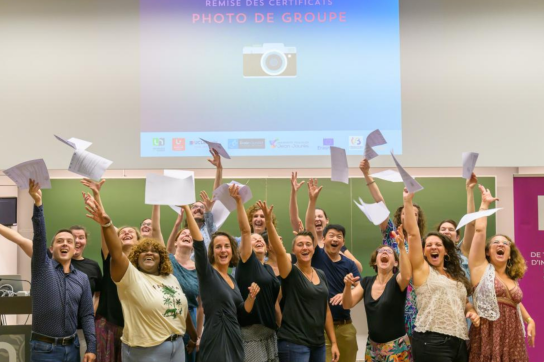
UNamur and UCLouvain win awards for sign language training
UNamur and UCLouvain win awards for sign language training
This is a great reward for the Interuniversity Certificate in Sign Language and French: it has just been distinguished by the European Innovative Teaching Award (EITA) in the "European Language Label" category.
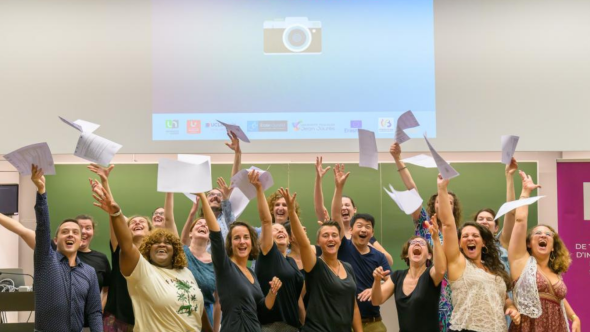
This prestigious prize, awarded by the European Commission, recognizes educational projects that promote innovative, inclusive and collaborative teaching practices. In 2025, only 117 projects were selected across Europe, including three in the Wallonia-Brussels Federation.
The award-winning project concerns the Certificat interuniversitaire en Langue des signes de Belgique francophone (LSFB) et français, co-organized by UNamur and UCLouvain Saint-Louis Bruxelles and supported by the Université de Toulouse Jean Jaurès (UTJJ) thanks to Erasmus+ funding. Running from September 2023 to June 2024, it aims to professionalize deaf interpreters in French-speaking Belgium and France, by offering them a unique training course leading to certification. Thanks to an innovative pedagogical approach, combining formal, non-formal and informal learning, 19 deaf adults were able to obtain certification, strengthening their professional recognition and role in society.
"We implemented this certificate because of the urgency and need to develop continuing education for deaf interpreters in French-speaking Belgium and the necessary reflection on the new profession of deaf interpreter in France," emphasizes Professor Dany Etienne (UCLouvain Saint-Louis Bruxelles), Dean of the Marie Haps Faculty of Translation and Interpreting.
"Deaf interpreters in Belgium are often self-trained, with no official recognition, which limits their professionalization and affects the services offered to deaf people. By integrating knowledge and tools from other universities, we have been able to develop suitable training, guaranteeing professionalism and ethics, in order to improve the quality of interpreting services and encourage recognition of the profession," adds Professor Laurence Meurant (UNamur).
This project thus marks a first in Belgium and France, filling a major gap in the training of deaf interpreters. It paves the way for better quality interpreting services and official recognition of the profession.
An exemplary university collaboration
The complementary expertise of the three partners has enabled the development of a unique training program of excellence:
- The research into the linguistic study of LSFB at UNamur conducted in collaboration with the ASBL École et surdité and the Centre scolaire Sainte-Marie Namur.
- Research and practice in the field of co-interpretation for UCLouvain Saint-Louis Bruxelles.
- Translation didactics for UTJJ.
This collaborative work has made it possible to develop tailor-made modules, adapted to the specific needs of deaf learners, and to create transnational links with experts in the UK, USA and Germany.
Find out more
- About the certificate in Interuniversity Certificate in Sign Language of French-speaking Belgium (LSFB) and French
- About the Laboratoire de langue des signes de Belgique francophone (LSFB-Lab)
- On the French-LSFB bilingual dictionary
This is also a project to support ! More info: https://unamur.be/fr/soutenir/lsfb
This project was made possible thanks to co-financing from the European Union.
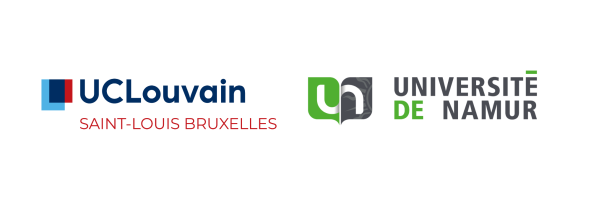
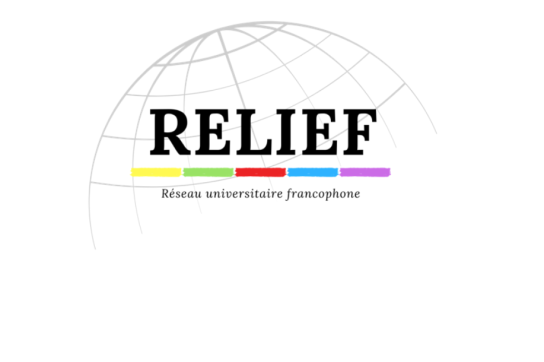
UNamur active in the Relief network: new collaborations planned
UNamur active in the Relief network: new collaborations planned
It's official: the University of Namur joins the Réseau d'Échanges et de Liaisons entre Institutions d'Enseignement Supérieur Francophones (RELIEF). It thus becomes the fourth partner in this network, alongside the Université du Québec à Trois-Rivières (UQTR), the Université Savoie Mont Blanc and the Haute École Spécialisée de Suisse Occidentale (HES-SO).
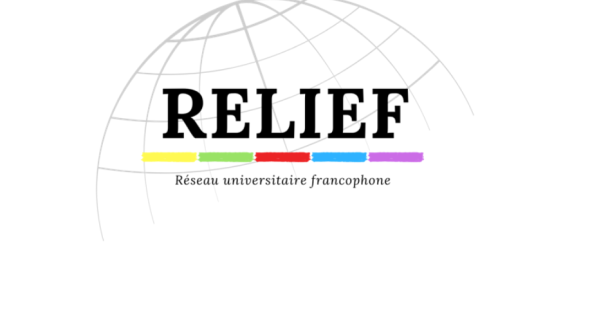
In late October, Rector Annick Castiaux, accompanied by Vice-Rector for International Relations and Cooperation Stéphane Leyens, visited Université Savoie Mont Blanc. The aim: to identify opportunities for bilateral collaboration between the two institutions.
Professors Denis Saint-Amand (Faculty of Philosophy and Letters, President of the Namur Institute of Language and Transmediality) and Johan Yans (Director of the Department of Geology and President of the Institute of Life,Earth and Environment) were also part of the UNamur delegation. Université Savoie Mont Blanc was represented by its President, Philippe Briand, as well as Mareva Sabatier (Vice-President of the Board of Directors, in charge of personnel), Pascal Hot (Vice-President in charge of research) and Emilie Viret-Thasiniphone (Director of International Relations).
Meetings were held with representatives from various institutes and laboratories: mathematics, physics, earth science and geology, business administration, literature. Opportunities for collaboration in these fields were discussed.
Relief: A strategic opportunity for UNamur
The RELIEF Network (Réseau d'Échanges et de Liaisons entre Institutions d'Enseignement Supérieur Francophones) brings together four universities: the UNamur, the Université Savoie Mont Blanc, the Université du Québec à Trois-Rivières (UQTR) as well as the Haute École Spécialisée de Suisse Occidentale (HES-SO).
Created in 2015, the RELIEF network aims to:
- Foster exchanges and interactions between partner institutions;
- Develop high-quality joint projects on an international scale, particularly in the French-speaking world, for students and teacher-researchers;
- Strengthen the visibility and impact of initiatives carried out by the network and its members.
Invited to join RELIEF in 2025, UNamur looks forward to this integration.

This is a great opportunity for our university to strengthen existing collaborations, initiate new ones and promote UNamur's expertise within a French-speaking space of innovation, training and research
.
Read more :

28 new research projects funded by the FNRS
28 new research projects funded by the FNRS
The F.R.S.-FNRS has just published the results of its various 2025 calls for proposals. These include the "Credits & Projects" and "WelCHANGE" calls, as well as the "FRIA" (Fund for Research Training in Industry and Agriculture) and "FRESH" (Fund for Research in the Humanities) calls, which aim to support doctoral theses. What are the results for UNamur? Twenty-eight projects have been selected, demonstrating the quality and richness of research at UNamur.

The "Credits & Projects" call for proposals resulted in 12 grants being awarded for ambitious new projects. These include two "equipment" grants, eight "research credits (CDR)" grants, and two "research projects (PDR)" grants, one of which is in collaboration with the ULB. The FRIA call for doctoral research support will fund eleven doctoral scholarships and the FRESH call will fund three.
Two prestigious Scientific Impulse Mandates (MIS) were also obtained. This three-year funding supports young permanent researchers who wish to develop an original and innovative research program by acquiring scientific autonomy within their department.
We would also like to highlight the two projects funded under the "WelCHANGE" call, a funding instrument for research projects with potential societal impact, led by a principal investigator in the humanities and social sciences.
Detailed results
Call for Equipment
- Xavier De Bolle, Narilis Institute, Co-promoter in collaboration with UCLouvain
- Luca Fusaro, NISM Institute
Call for Research Grants (CDR)
- Marc Hennequart, NARILIS Institute
- Nicolas Gillet, NARILIS Institute
- Jean-Yves Matroule, NARILIS Institute
- Patricia Renard, NARILIS Institute
- Francesco Renzi, NARILIS Institute
- Stéphane Vincent, NISM Institute
- Laurence Meurant, NaLTT Institute
- Emma-Louise Silva, NaLTT Institute
Call for Research Projects (PDR)
- Jérémy Dodeigne, Transitions Institute, Co-supervisor in collaboration with ULB
- Luc Henrard, NISM Institute; Co-supervisor: Yoann Olivier, NISM Institute
Fund for Training in Research in Industry and Agriculture (FRIA)
- Emma Bongiovanni - Supervisor: Catherine Michaux, NISM Institute
- Simon Chabot - Supervisor: Carine Michiels, Narilis Institute; Co-supervisor: Anne-Catherine Heuskin, Narilis Institute
- Lee Denis - Supervisor: Muriel Lepère, ILEE Institute
- Maé Desclez - Supervisor: Johan Yans, ILEE Institute; Co-supervisor: Hamed Pourkhorsandi (University of Toulouse)
- Pierre Lombard - Supervisor: Benoît Muylkens, Narilis Institute; Co-supervisor: Damien Coupeau, Narilis Institute
- Amandine Pecquet - Supervisor: Nicolas Gillet, Narilis Institute; Co-supervisor: Damien Coupeau, Narilis Institute
- Kilian Petit - Supervisor: Henri-François Renard, Narilis Institute; Co-supervisor: Xavier De Bolle, Narilis Institute
- Simon Rouxhet - Supervisor: Catherine Michaux, NISM Institute; Co-supervisor: Nicolas Gillet, Narilis Institute
- William Soulié - Supervisor: Yoann Olivier, NISM Institute
- Elisabeth Wanlin - Supervisor: Xavier De Bolle, Narilis Institute
- Laura Willam - Supervisor: Frédérik De Laender, ILEE Institute
Fund for Research in the Humanities (FRESH)
- Louis Droussin - Supervisor: Arthur Borriello, Transitions Institute; Co-supervisor: Vincent Jacquet, Transitions Institute
- Nicolas Larrea Avila - Supervisor: Guilhem Cassan, DeFIPP Institute
- Victor Sluyters – Supervisor: Wafa Hammedi, NADI Institute
- Amandine Leboutte - Co-supervisor: Erika Wauthia (UMons); Co-supervisor: Cédric Vanhoolandt, IRDENa Institute.
Scientific Impulse Mandate (MIS)
- Charlotte Beaudart, Narilis Institute
- Eli Thoré ILEE Institute
WelCHANGE Call
- Nathalie Burnay Transitions Institute, in collaboration with UCLouvain
- Catherine Guirkinger, DeFIPP Institute
Congratulations to all!

When internet memes become a subject of research
When internet memes become a subject of research
Born on the internet, memes are an integral part of digital culture. These images, often humorous, combine text and visuals to convey a message. At UNamur, Lieven Vandelanotte, professor of English language and linguistics and general linguistics at the Faculty of Philosophy and Letters, has taken an interest in them from a linguistic point of view. In his new book, co-written with Barbara Dancygier of the University of British Columbia, he deciphers how these creations play with words, images, and grammar.

First appearing in 1976, the concept of a meme was used by biologist Richard Dawkins to refer to an idea or habit that spreads from one person to another. With the rise of digital technology, the term has taken on a new meaning, now referring to images shared and repurposed online, often accompanied by text, which comment on current events, express an emotion, or describe a situation in a few words. But for Lieven Vandelanotte, professor at the Faculty of Philosophy and Letters, memes represent a new type of language. "Memes are not just illustrations. They combine text and image in a way that transforms how meaning is constructed," he explains.
A linguistic look at digital language
A specialist in discourse and English linguistics, Lieven Vandelanotte has been studying reported speech and multimodality for several years, i.e., productions that combine several modes of expression, such as images and text.
Thanks to his Francqui Research Professorship, obtained in 2023, he has been able to devote more time to this topic. "This position gives me the opportunity to further my research on multimodality and to finalize this book, a project I have been working on for a long time."
The goal of his work? To show that in memes, images play a linguistic role in their own right. "They can replace a word, complete a sentence, or express a point of view. They are a true grammatical component."
When images construct meaning
Among the memes he analyzes, Lieven Vandelanotte cites the famous Distracted Boyfriend: a man looks away from his girlfriend to admire another woman.
"This meme illustrates the idea of making a choice, changing preferences, turning away from one option to another. A similar idea is expressed by the meme called "Exit 12." An example that combines the two shows that users are well aware that these images are not really used to describe a scenario between lovers or a situation on the highway, but they perceive that different forms, with different images, can have more or less the same meaning."

Another example is the Good Girl Gina meme, where a smiling young woman is associated with phrases describing "positive" behavior. In the Gets mad at you / Tells you why version, the humor is based on the contrast with a sexist stereotype: the protagonist gets angry, but, contrary to the stereotype, she explains why. "In this case, the image acts as the subject of the sentence. It doesn't illustrate the text, it's an integral part of it and plays a full role in constructing meaning," emphasizes Lieven Vandelanotte.

He also mentions the category of when-memes, where a sentence beginning with When... ends with an image. For example: "When you're at a party full of people you don't know so you stay with your friend the whole time ," accompanied by a photo of a small koala clinging to a leg. "Here, the image completes the sentence. It does not directly illustrate the situation, but provides the conclusion, like a separate syntactic segment."

These analyses are at the heart of the book The Language of Memes, co-authored by Barbara Dancygier and Lieven Vandelanotte and published by Cambridge University Press.
Presented as the first book to offer an in-depth linguistic analysis of Internet memes, it proposes a new approach to the study of multimodal genres and explores how images and texts work together to create meaning.

When it happens on the train...
In recent years, Lieven Vandelanotte has participated in numerous conferences to present the results of his research on memes, but none were as original as the recent "Railway Aesthetics" conference. This conference took place on moving trains. Traveling from Vienna to Bucharest, then from Bucharest to Istanbul, the participants lived together in the train cars for the entire duration of the conference. Together with Justin Bai from the University of Colorado, he gave a presentation on the use of trains in internet memes and social media discourse, as in the attached example (a "when-meme" featuring the late chef Anthony Bourdain looking very cool, ironically reflecting the attitude of someone who manages not to be mocked by a French waiter).


UNamur and UCLouvain win awards for sign language training
UNamur and UCLouvain win awards for sign language training
This is a great reward for the Interuniversity Certificate in Sign Language and French: it has just been distinguished by the European Innovative Teaching Award (EITA) in the "European Language Label" category.

This prestigious prize, awarded by the European Commission, recognizes educational projects that promote innovative, inclusive and collaborative teaching practices. In 2025, only 117 projects were selected across Europe, including three in the Wallonia-Brussels Federation.
The award-winning project concerns the Certificat interuniversitaire en Langue des signes de Belgique francophone (LSFB) et français, co-organized by UNamur and UCLouvain Saint-Louis Bruxelles and supported by the Université de Toulouse Jean Jaurès (UTJJ) thanks to Erasmus+ funding. Running from September 2023 to June 2024, it aims to professionalize deaf interpreters in French-speaking Belgium and France, by offering them a unique training course leading to certification. Thanks to an innovative pedagogical approach, combining formal, non-formal and informal learning, 19 deaf adults were able to obtain certification, strengthening their professional recognition and role in society.
"We implemented this certificate because of the urgency and need to develop continuing education for deaf interpreters in French-speaking Belgium and the necessary reflection on the new profession of deaf interpreter in France," emphasizes Professor Dany Etienne (UCLouvain Saint-Louis Bruxelles), Dean of the Marie Haps Faculty of Translation and Interpreting.
"Deaf interpreters in Belgium are often self-trained, with no official recognition, which limits their professionalization and affects the services offered to deaf people. By integrating knowledge and tools from other universities, we have been able to develop suitable training, guaranteeing professionalism and ethics, in order to improve the quality of interpreting services and encourage recognition of the profession," adds Professor Laurence Meurant (UNamur).
This project thus marks a first in Belgium and France, filling a major gap in the training of deaf interpreters. It paves the way for better quality interpreting services and official recognition of the profession.
An exemplary university collaboration
The complementary expertise of the three partners has enabled the development of a unique training program of excellence:
- The research into the linguistic study of LSFB at UNamur conducted in collaboration with the ASBL École et surdité and the Centre scolaire Sainte-Marie Namur.
- Research and practice in the field of co-interpretation for UCLouvain Saint-Louis Bruxelles.
- Translation didactics for UTJJ.
This collaborative work has made it possible to develop tailor-made modules, adapted to the specific needs of deaf learners, and to create transnational links with experts in the UK, USA and Germany.
Find out more
- About the certificate in Interuniversity Certificate in Sign Language of French-speaking Belgium (LSFB) and French
- About the Laboratoire de langue des signes de Belgique francophone (LSFB-Lab)
- On the French-LSFB bilingual dictionary
This is also a project to support ! More info: https://unamur.be/fr/soutenir/lsfb
This project was made possible thanks to co-financing from the European Union.


UNamur active in the Relief network: new collaborations planned
UNamur active in the Relief network: new collaborations planned
It's official: the University of Namur joins the Réseau d'Échanges et de Liaisons entre Institutions d'Enseignement Supérieur Francophones (RELIEF). It thus becomes the fourth partner in this network, alongside the Université du Québec à Trois-Rivières (UQTR), the Université Savoie Mont Blanc and the Haute École Spécialisée de Suisse Occidentale (HES-SO).

In late October, Rector Annick Castiaux, accompanied by Vice-Rector for International Relations and Cooperation Stéphane Leyens, visited Université Savoie Mont Blanc. The aim: to identify opportunities for bilateral collaboration between the two institutions.
Professors Denis Saint-Amand (Faculty of Philosophy and Letters, President of the Namur Institute of Language and Transmediality) and Johan Yans (Director of the Department of Geology and President of the Institute of Life,Earth and Environment) were also part of the UNamur delegation. Université Savoie Mont Blanc was represented by its President, Philippe Briand, as well as Mareva Sabatier (Vice-President of the Board of Directors, in charge of personnel), Pascal Hot (Vice-President in charge of research) and Emilie Viret-Thasiniphone (Director of International Relations).
Meetings were held with representatives from various institutes and laboratories: mathematics, physics, earth science and geology, business administration, literature. Opportunities for collaboration in these fields were discussed.
Relief: A strategic opportunity for UNamur
The RELIEF Network (Réseau d'Échanges et de Liaisons entre Institutions d'Enseignement Supérieur Francophones) brings together four universities: the UNamur, the Université Savoie Mont Blanc, the Université du Québec à Trois-Rivières (UQTR) as well as the Haute École Spécialisée de Suisse Occidentale (HES-SO).
Created in 2015, the RELIEF network aims to:
- Foster exchanges and interactions between partner institutions;
- Develop high-quality joint projects on an international scale, particularly in the French-speaking world, for students and teacher-researchers;
- Strengthen the visibility and impact of initiatives carried out by the network and its members.
Invited to join RELIEF in 2025, UNamur looks forward to this integration.

This is a great opportunity for our university to strengthen existing collaborations, initiate new ones and promote UNamur's expertise within a French-speaking space of innovation, training and research
.
Read more :
Les thématiques de recherche
- Pratiques langagières, politique et planification linguistiques en contexte multilingue
- Propriétés structurelles et discursives des constructions linguistiques et des variétés linguistiques
- Multilinguisme et apprentissage d’une langue
- Traduction et hétérolinguisme comme manifestations du contact linguistique et du transfert interculturel
- Littérature, société et transmédialité
- Pratiques et concepts littéraires à travers les temps et les espaces
Contact
Pour toute question : info.naltt@unamur.be





